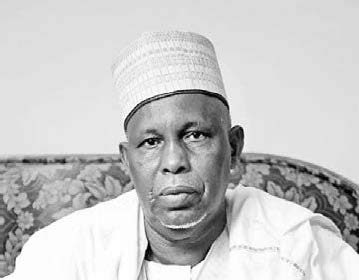From Femi Mustapha, in Kaduna
Nigeria’s pursuit of self-reliance in arms and ammunition production received a significant boost on Wednesday when the Defence Industries Corporation of Nigeria (DICON) signed a joint venture agreement with SP Offshore Nigeria Limited.
This agreement paves the way for the local manufacturing of military hardware, including weapons, ammunition, fast assault craft, drones, and security vehicles.
During the signing ceremony held at the DICON headquarters in Kaduna, Major General Babatunde Ibrahim Alaya, the Director General of DICON, described the agreement as a watershed moment that will advance the country’s long-standing aspiration to establish a robust military industrial complex.
General Alaya stated, “This memorandum of understanding with SP Offshore takes DICON to another level. We are now partnering with another Nigerian company to produce ammunition and weapons, and we plan to establish a jetty in Lagos where we can manufacture fast assault craft, security vehicles, and other platforms critical to our national security.”
He disclosed that within the next year, the partnership would commence local production of ammunition, with plans to expand into full weapons manufacturing shortly thereafter. “This is a great day for DICON, as this joint venture project will fast-track our indigenous capacity and help us meet the needs of the Nigerian Armed Forces and other security agencies,” he added.
Alaya praised President Bola Ahmed Tinubu for signing the DICON Act 2023, which provided the legal framework enabling the corporation to enter into such strategic partnerships. He also acknowledged the support of the Minister of Defence, the Minister of State for Defence, the Chief of Defence Staff, and the Service Chiefs for backing the corporation’s new direction.
In his remarks, the Chief Executive Officer of SP Offshore Nigeria Limited, Mr. Obafemi Adekunle, stated that the partnership would bring billions of dollars in investments into Nigeria’s defense sector, highlighting technology transfer and capacity building as major components.
Adekunle emphasized that modern warfare increasingly relies on technological superiority. He added, “The next wars won’t just be fought with guns and bullets, but through technological warfare. What we are offering the Nigerian military is a deterrent capability that instills fear in the enemies of the state and compels them to reconsider any attempts to destabilize our country.”
He hinted that some of the advanced platforms under the partnership could not yet be disclosed for strategic reasons. “A lot of things are coming, but we won’t reveal everything now because you don’t show your entire hand to adversaries. Let them discover it themselves over time,” he said.
Adekunle also commended the DG of DICON for his “record-speed administrative acumen” and praised President Tinubu, along with the lawmakers who championed the enabling legislation. “This alliance is more than a contract. It is a beacon of our collective strength, an unbreakable promise to safeguard Nigeria,” he stated.
The joint venture is expected not only to fulfill Nigeria’s local defense requirements but also to create excess capacity that could enable the country to export military equipment to other nations shortly.
With this new deal, stakeholders believe Nigeria is on track to drastically reduce its dependence on foreign arms supplies, conserve foreign exchange, and build critical local competencies in defense manufacturing.







